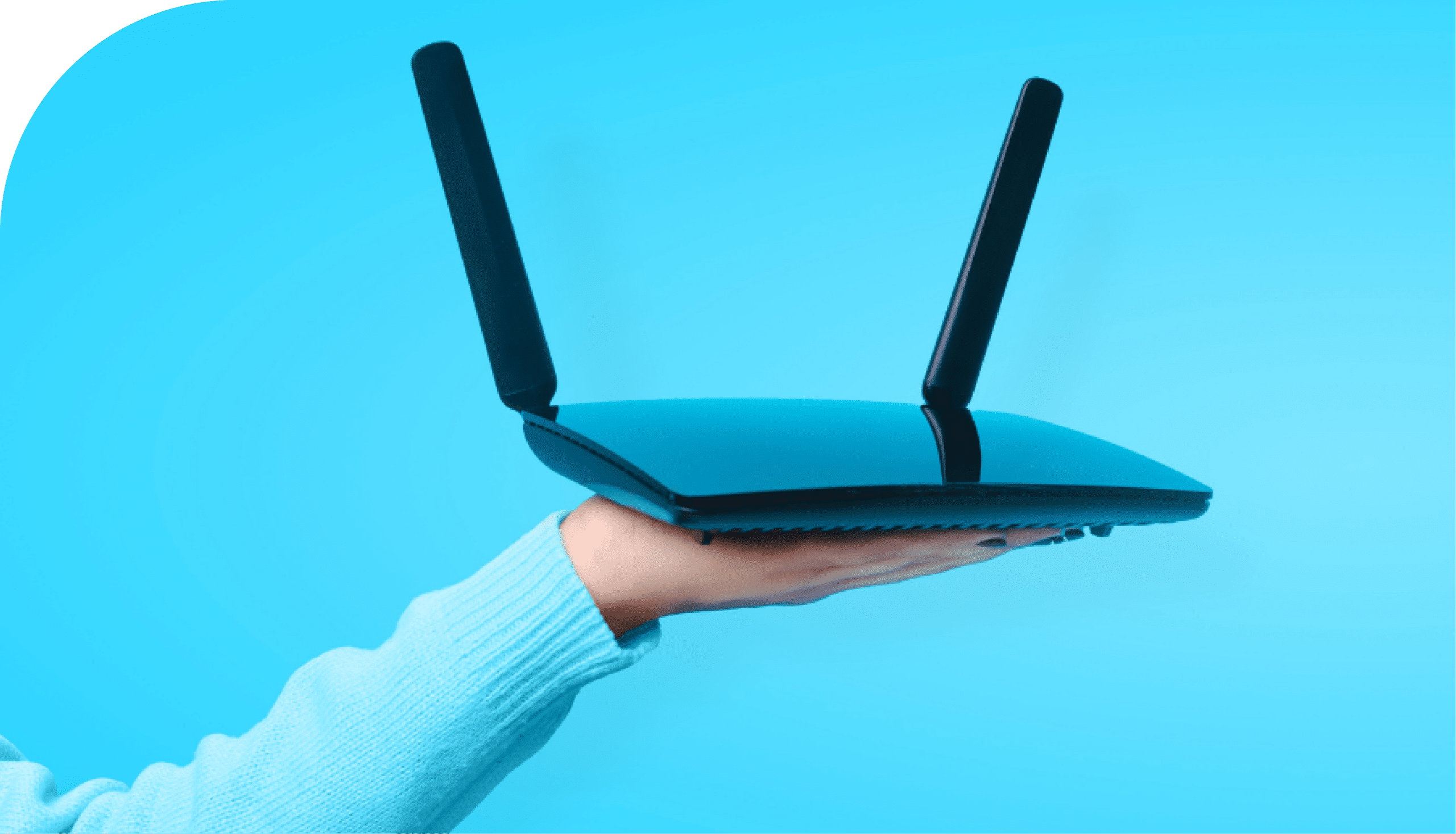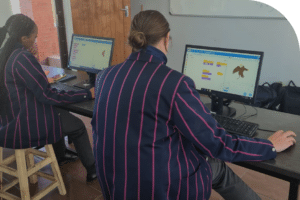Navigating Fibre Internet Woes: The Human Touch in an AI World
Fibre Network Operators (FNOs) and Internet Service Providers (ISPs) are constantly bombarded with calls from customers and subscribers regarding their fibre internet service – the connection, up-time, speed, etc. Who is responsible for fixing their fibre internet problems and how do they go about raising issues and finding solutions?

Wi-Fi connection issues
A lot of end-users, according to Warren Thomas, Chief Sales and Marketing Officer (CSMO) at RocketNet, seem to experience challenges with connecting to the Wi-Fi and nine out of 10 times it is not related to the FNO’s network, a break in the fibre or the router.
“Most of the time it’s the user devices not being able to correctly connect to the network or not being speed capable to actually connect onto, let’s say a 100Mbps fibre line. There are a few reasons this can happen. Sometimes the devices or the Wi-Fi cards within those devices aren’t 100Mbps capable. So, you run a speed test and you might not get the speeds that you necessarily are paying for,” Thomas says.
Subscribers are therefore advised to always connect through a hard cable into their router and not use Wi-Fi when running a speed test, because Wi-Fi connections can have an impact on the internet speeds users experience.
Wi-Fi is very prone to interference by microwaves, lighting, where the Wi-Fi router is placed in your home, and even the thickness of walls. All these things, and more, affect what sort of speeds customers experience on the Wi-Fi.
“Cable remains number one from an internet perspective. Wi-Fi is a nice to have to allow you to connect on mobile devices to your home network to browse some social media but potentially not for time critical functionality,” notes Thomas.
Wi-Fi is great to have but it’s not a very good indicator or test to determine the actual performance of your internet service you’re receiving. It should never be used as the final performance determining factor of your service.
To properly test the final performance of your internet service from your ISP and the FNO network then you have to disconnect your Wi-Fi and test your service through a physical or hardline directly plugged into your Optical Network Terminal (ONT) box or router.
Tech-savvy or not?
Although consumers have become more tech-savvy and are a lot more aware of fibre and its capabilities and how to fix minor problems themselves, Bradley Bekker, General Manager (GM) at Evotel, queries if they are tech-savvy enough or do they still contact ISPs and FNOs for assistance, and how do they do that?
According to Tyrone Smith, Executive Department Head: Fibre to the Home (FTTH) Service Delivery at Vodacom, Vodacom has not seen a shift in consumer behavior and says: “It’s basically plug and play. If plug and play doesn’t work, then they would like to speak to a person to discuss their problem.”
When a fibre related call comes into the call center, the call center agents do first line resolution online with a customer. If they can’t solve that log request it is then transferred to the back-office team. If the back-office can’t rectify the issue a technician is sent out to the customer’s house to sort out the problem.
Both RocketNet and Vodacom are experiencing the same thing.
Notes Thomas: “Subscribers are still contacting us concerning basic issues and as much as we have developed ways for customers to be able to help themselves through self-serve channels, there are still a lot of users that wants to speak to a physical person.”
The ways in which customers want to connect and contact their service providers increased a lot and they are increasingly looking towards social media platforms as a way to get in contact with companies.
As much as artificial intelligence (AI) is also becoming more accepted and being used across all industries there still seems to be a line that AI can’t cross.
Bots and the personal touch
It seems that subscribers are not taking to bots and bot-like services as much as was thought and human interaction is still required, especially when it comes to fibre-related customers and the solving of fibre problems.
It could simply be the human psyche that, when it comes to problem solving, people still trust in humans more than machines, or at least speaking to a human about said problem.
Though bots or bot-like services have been introduced to assist customers and subscribers with the way they interact with service providers, giving them more options, these services need to add value to the user’s experience.
Says Bekker: “Customers still want a personalized touch which we don’t want to lose, but we definitely do want to try and aid ISPs to be able to be proactive and enable customers to help themselves. So, I think as a network operator, we definitely have to make some improvements and some changes to be a lot more proactive.”
The tricky part is how do you still keep that personal touch when dealing with a customer on social media, where a lot of interactions happen, and through bots?
Says Thomas: “If anyone ever logs a comment or query on a Facebook ad or on a Twitter feed regarding RocketNet at the moment, I’m personally responding to you. Yes, I’m the one that’s personally responding to that comment or query. When the engagement goes a bit further, we’ll go back into our call center and our help desk for solutions. We are one big family at RocketNet. It’s one of those scenarios where everyone gets involved, everyone knows every sort of major outage query situation that the customers are going through. That’s how we take it personally. If we get a negative review on a site, everyone knows about it and everyone’s trying to address it.”
Thomas adds that RocketNet never wants to lose that personal touch, which is the reason the company is trying to shy away from jumping into automated systems and responses – (basically bots). “We want to know everyone and everything that’s going on. So, try and keep our fingers very much involved with our subscriber base,” he notes.
Smith says that Vodacom has various ways of ensuring that personal touch remains. “We’ve got the call center, the fibre call center and behind that we’ve also got a social media control center that do all the social media checks. They will also call the customers themselves because you always have to call the customer.”
Smith also believes that the issue is not about the escalation of an issue through the various ranks, but that the communication with the customer is lacking. “It’s the customer who’s not communicated to enough,” he says.
It makes sense that if the customer gets enough communication, they are okay. In the case where a fibre link is down and then four days later the customer has still heard nothing about the fix or what is happening, then that is a problem. It is just making sure that the customer is kept updated constantly and then the customer will be a lot happier.
“For a bot to take over that kind of function, especially when the customer vents and is highly irate, is extremely difficult,” Smith adds.
The truth is that a bot won’t be able to gauge whether the customer is extremely irate or not and won’t be able to understand the feeling and emotions the customer is experiencing and won’t be able to effectively respond to the situation.
Bekker believes that AI is still far away from making that kind of distinction and gauging how irate a customer is and how to deal with such circumstances. That is when human intervention is required to put the customer at ease.
Evotel and both ISPs (RocketNet and Vodacom) understand that when it comes to fibre customers want that personal touch and they endeavor to provide just that.
It is important for consumers to also remember that Wi-Fi connections to their fibre installations have their own problems. Speed issues to their internet connection might not be because there is a problem with the fibre, but rather with the Wi-Fi, which is not the FNOs domain, but that of the ISP, who then needs to be contacted. Furthermore, Evotel, RocketNet and Vodacom are aware that customers, at this point in time, are not ready to speak to a bot and would much rather be speaking to a person about their fibre issues.
NOTE:
The above article stems from the Evotel podcast: “The Roles of FNOs vs ISPs”, where Bradley Bekker, General Manager (GM) at FNO, Evotel, chats with Warren Thomas, the Chief Sales and Marketing Officer (CSMO) at RocketNet, and Tyrone Smith, Executive Department Head: Fibre to the Home (FTTH) Service Delivery at Vodacom about what FNOs and ISPs are faced with on a daily basis – https://iono.fm/e/1323253



